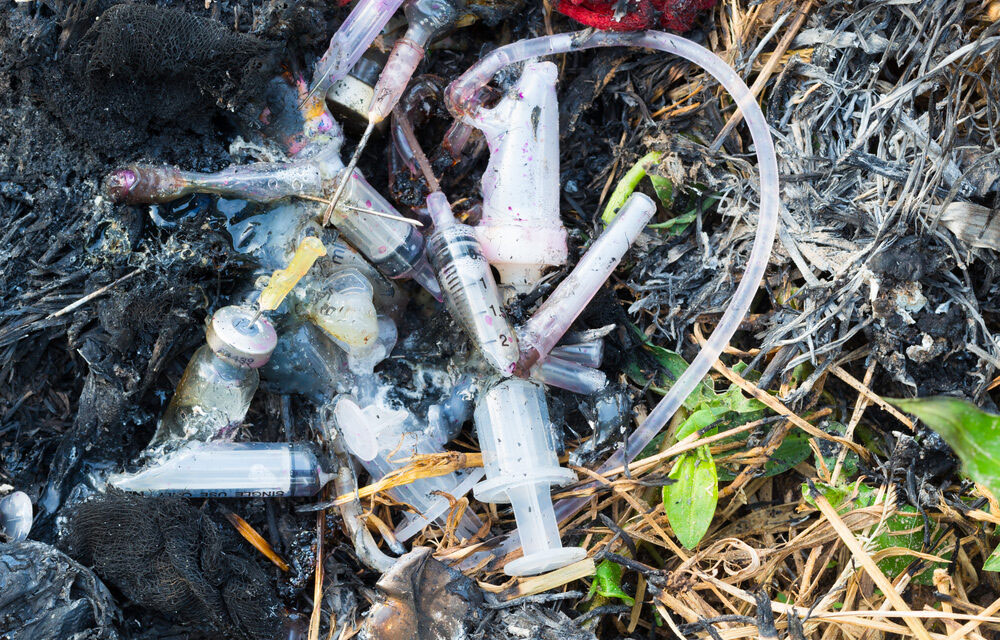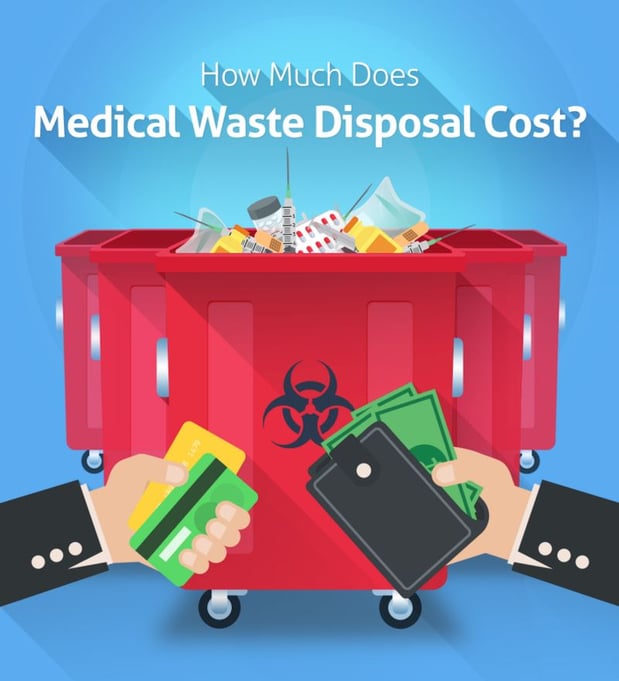Specialist Medical Waste Disposal Services: Taking Care Of Biohazards
Specialist Medical Waste Disposal Services: Taking Care Of Biohazards
Blog Article
Accountable Solutions: Understanding Medical Garbage Disposal Provider
In the world of medical care, the appropriate disposal of clinical waste is an important element that requires careful consideration. As medical care centers generate various types of waste that need specialized handling, recognizing the nuances of medical waste disposal solutions is vital.
Relevance of Appropriate Clinical Garbage Disposal
Correct clinical waste disposal is vital in preserving a hygienic and safe environment within medical care centers. In medical care settings, numerous kinds of waste are generated daily, consisting of transmittable materials, sharps, ran out medications, and chemical substances. Otherwise effectively managed, these wastes can posture major threats to both medical care workers and the basic public. Improper disposal can lead to the spread of infections, injuries from sharps, contamination of water sources, and damage to the atmosphere.

Types of Clinical Waste
Within health care centers, a varied range of waste materials classified as medical waste is created, each needing details handling and disposal methods. Pathological waste, which includes cells, body organs, and body components, requires correct disposal to value the self-respect of the departed and prevent any kind of biohazards. Comprehending the various kinds of medical waste is essential for medical care facilities to apply efficient waste monitoring techniques and protect public health and wellness and the environment.
Laws and Conformity
Healthcare facilities need to abide by rigid regulations relating to the handling and disposal of clinical waste to guarantee conformity with lawful requirements and secure public wellness. These regulations are placed in area to stop the spread of infections, shield the environment, and keep the safety of medical care workers and the general public. Different governing bodies, such as the Epa (EPA), the Occupational Security and Wellness Administration (OSHA), and the Division of Transport (DOT), have specific guidelines that health care centers should comply with.
To abide with these regulations, health care centers have to correctly set apart, shop, transport, and dispose of different kinds of medical waste. This includes sharps waste, contagious waste, contaminated materials, and pharmaceutical waste, each needing certain handling procedures. Facilities must also maintain accurate records of waste generation and disposal to demonstrate conformity throughout evaluations.
Non-compliance with medical waste guidelines can cause extreme fines, penalties, and damage to the center's credibility. Consequently, it is essential for healthcare centers to remain educated regarding the current policies and execute robust conformity procedures to secure public health and wellness and the atmosphere.
Advantages of Professional Disposal Providers
Involving specialist clinical waste disposal solutions supplies health care facilities a trusted and reliable solution for handling dangerous products. By outsourcing this important task to professionals, healthcare centers can guarantee conformity with policies while concentrating on supplying quality treatment to patients. Among the essential advantages of expert disposal services is the knowledge they offer the table. These solutions employ trained professionals who are well-versed in handling various sorts of medical waste, ensuring proper partition, transportation, product packaging, and disposal.
Furthermore, specialist disposal solutions make use of state-of-the-art equipment and adhere to industry best techniques to lessen ecological influence and reduce the risk of contamination. This not just advertises a more secure workplace for medical care team yet also contributes to overall public health and security. Furthermore, contracting out medical waste disposal can lead to cost savings over time by getting rid of the need for internal monitoring and disposal systems.
Sustainable Practices in Health Care

One secret lasting practice read this article in health care is waste decrease. By implementing methods to reduce unnecessary product packaging, single-use things, and overall waste generation, health care centers can significantly decrease the amount of waste sent out to garbage dumps or incineration. Additionally, reusing programs for products like glass, paper, and plastic can even more lower the environmental effect of medical care operations.

Conclusion
In conclusion, correct clinical garbage disposal is important in keeping a secure and healthy and balanced setting for both health care workers and the general public. Understanding the various types of medical waste, adhering to laws and conformity standards, and making use of specialist disposal services are vital steps in liable waste management. By taking on lasting practices in medical care centers, we can decrease environmental impact and ensure the health of all individuals involved in the medical care sector.
As medical care centers produce different types of waste that require specialized handling, comprehending the nuances of medical waste disposal services is paramount.Within healthcare Look At This facilities, a diverse selection of waste materials classified as clinical waste is generated, each calling for certain handling and disposal methods. Understanding the numerous kinds of clinical waste is vital for medical care facilities to apply efficient waste monitoring methods and secure public health and the setting.
By executing approaches to minimize unnecessary product packaging, check it out single-use products, and overall waste generation, medical care facilities can substantially reduce the amount of waste sent out to landfills or incineration. Understanding the various kinds of clinical waste, complying with policies and conformity standards, and using specialist disposal solutions are necessary actions in responsible waste monitoring.
Report this page